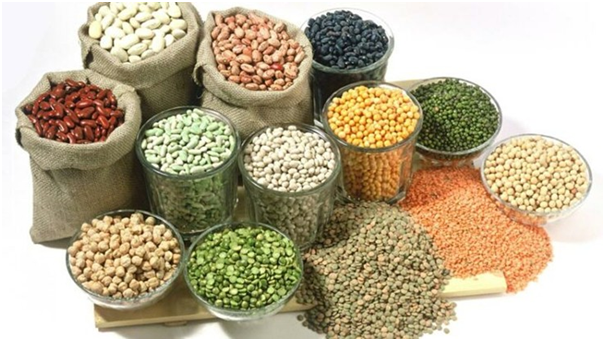
India, the world’s largest consumer and
producer is expected to import over 20,000 tonne of black gram (Urad) from
Brazil for the first time and unspecified amounts of pigeon pea (Tur) from
Argentina to meet its domestic requirements.
Retail inflation in pulses remains high, although it
slowed to 17.71% in March compared to a rise of 18.9% in February, according to
official data…India’s output of pulses dipped to 23.4 million tonne in 2023-24
from 26.1 million tonne a year ago, the agriculture ministry estimates.
“Affordability
and availability are two big factors. The government has held several rounds of discussions
with the South American nations, which have conducive weather to grow these
varieties while their own requirements are not much,” one of the officials said, seeking anonymity.
Pulses are the commonest source of protein for most
Indians. A campaign by the central government to ramp up local production saw
total output jump 37% since 2015-16, according to official figures, helping to
cut costly imports. Yet, the country has to rely on foreign shipments to meet
total demand.
India’s requirement of black gram is solely met
through imports from Myanmar under a memorandum of understanding between the
two nations. Import of gram from the conflict-ridden neighbouring country
stumbled last year, affecting local prices. .
In 2023, India imported nearly 3 million
tonne of pulses, mostly lentils, black gram and pigeon pea, from Canada,
Australia, Mozambique, Tanzania, Sudan, Malawi and Myanmar.
Rising protein prices can be a significant driver of
household expenses. The federal government has imposed a slew of measures to
tame prices ahead of a general election to keep basic food commodities
affordable. For instance, the government has waived off import duties for three
varieties of pulses – pigeon pea, black gram and lentil (masoor) till March
2025 to boost local supplies.
Between 2004-05 and 2013-14, pulses saw a price spike
of 143%, stoked by global prices and rising protein demand due to better
purchasing power, according to a Reserve Bank paper by the late former deputy
governor Subir Gokarn. He calculated
that many Indians had crossed an income threshold beyond which protein intake
such as pulses, eggs and meat increases.
That is, now Indians can
afford to include more pulses in their food.